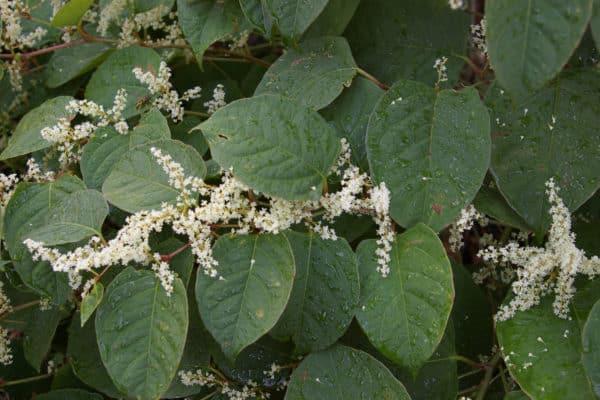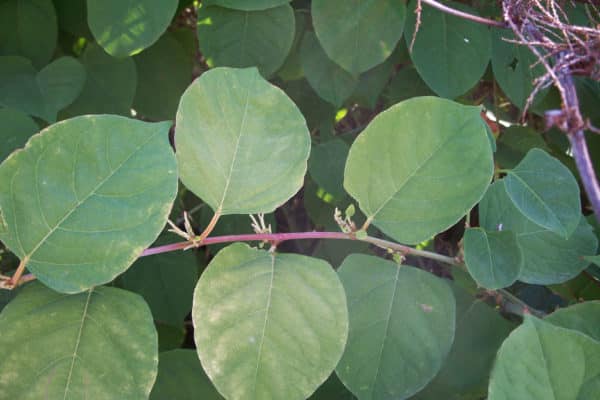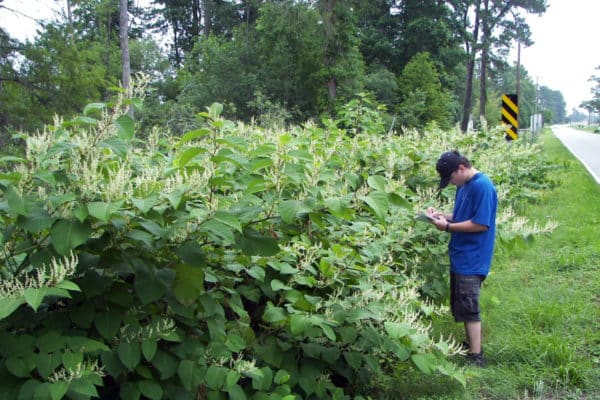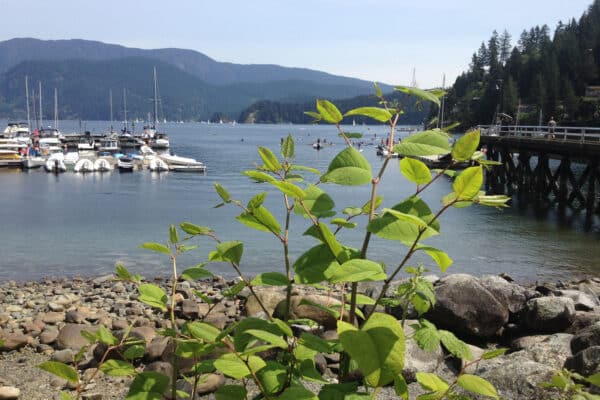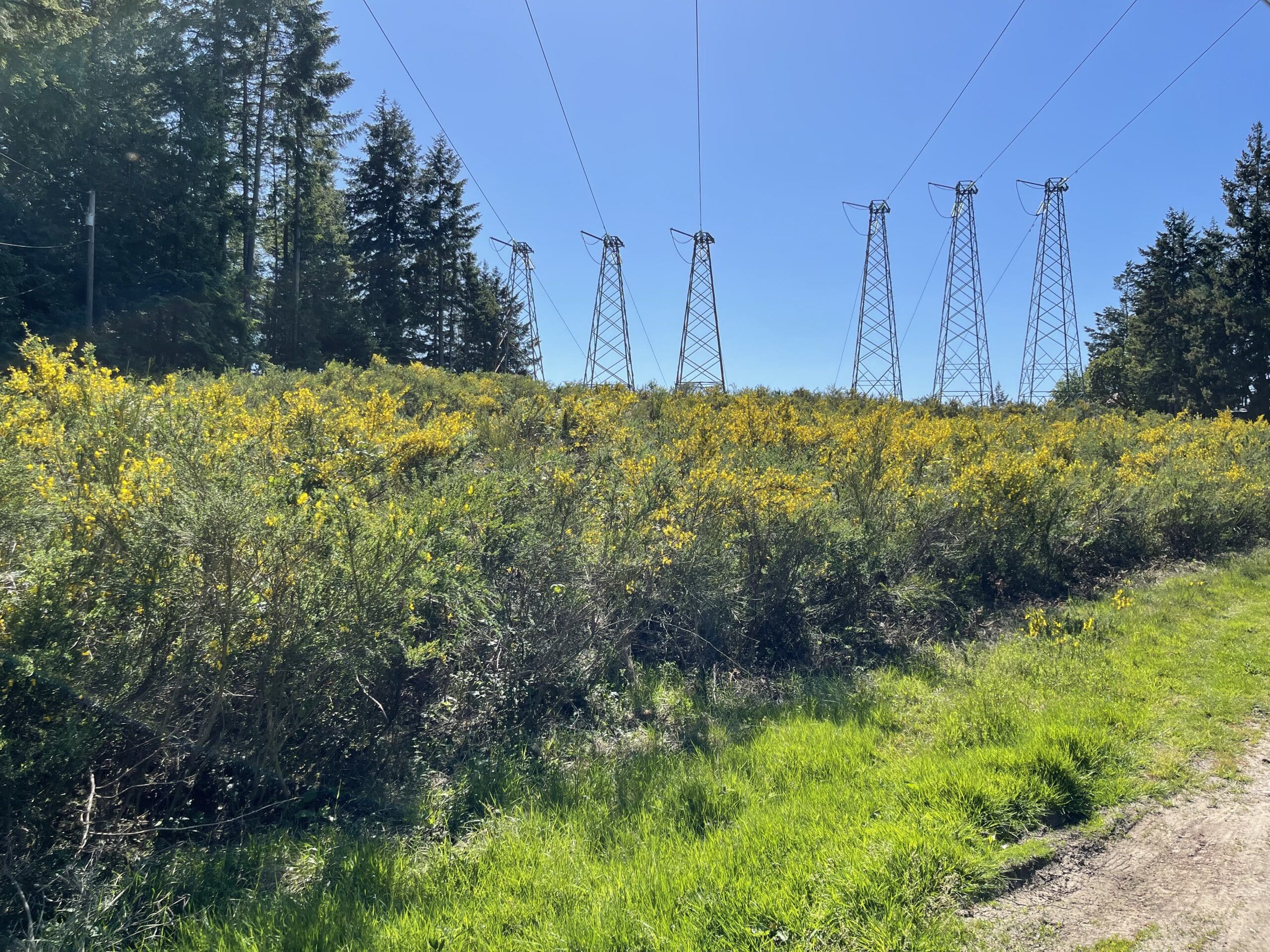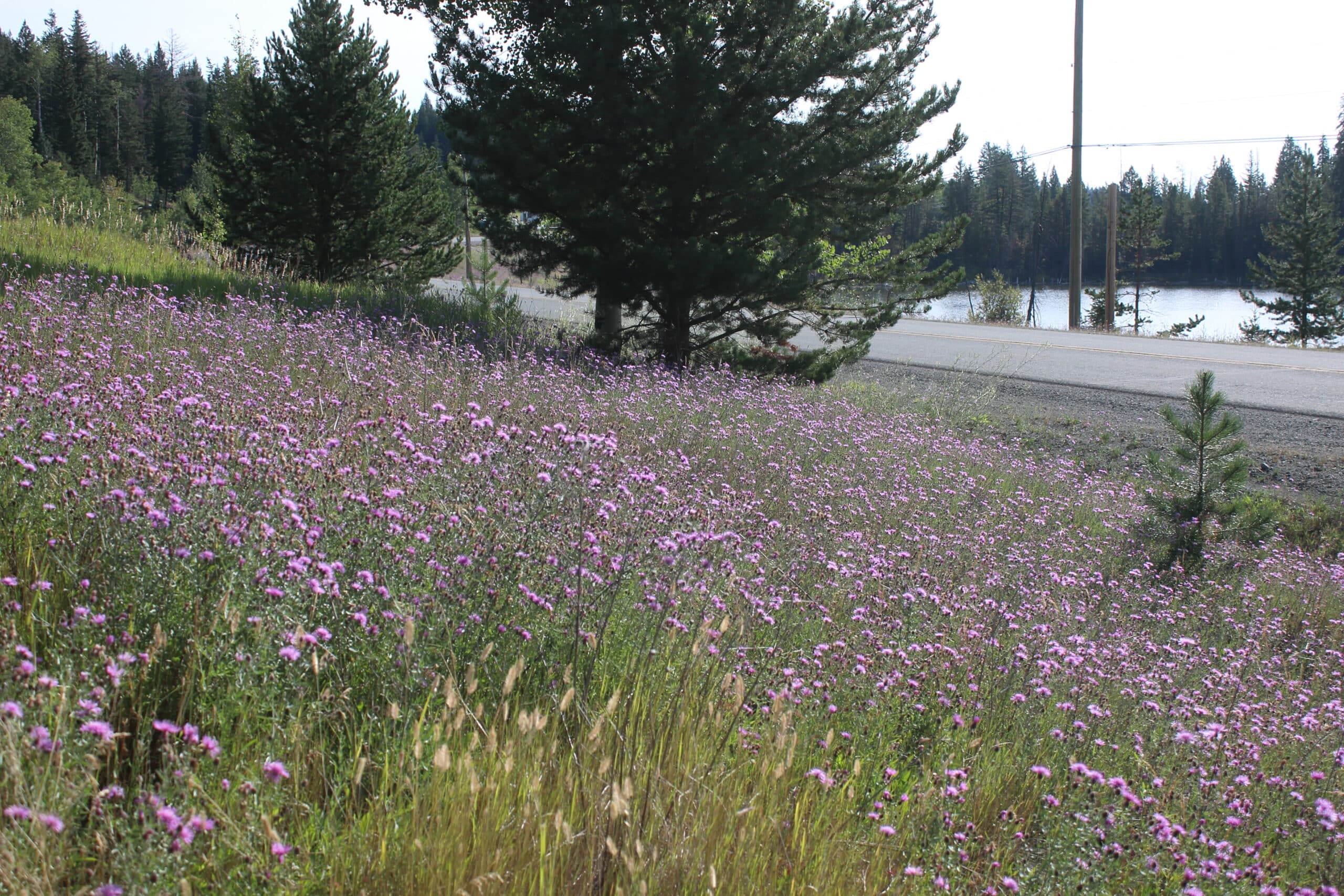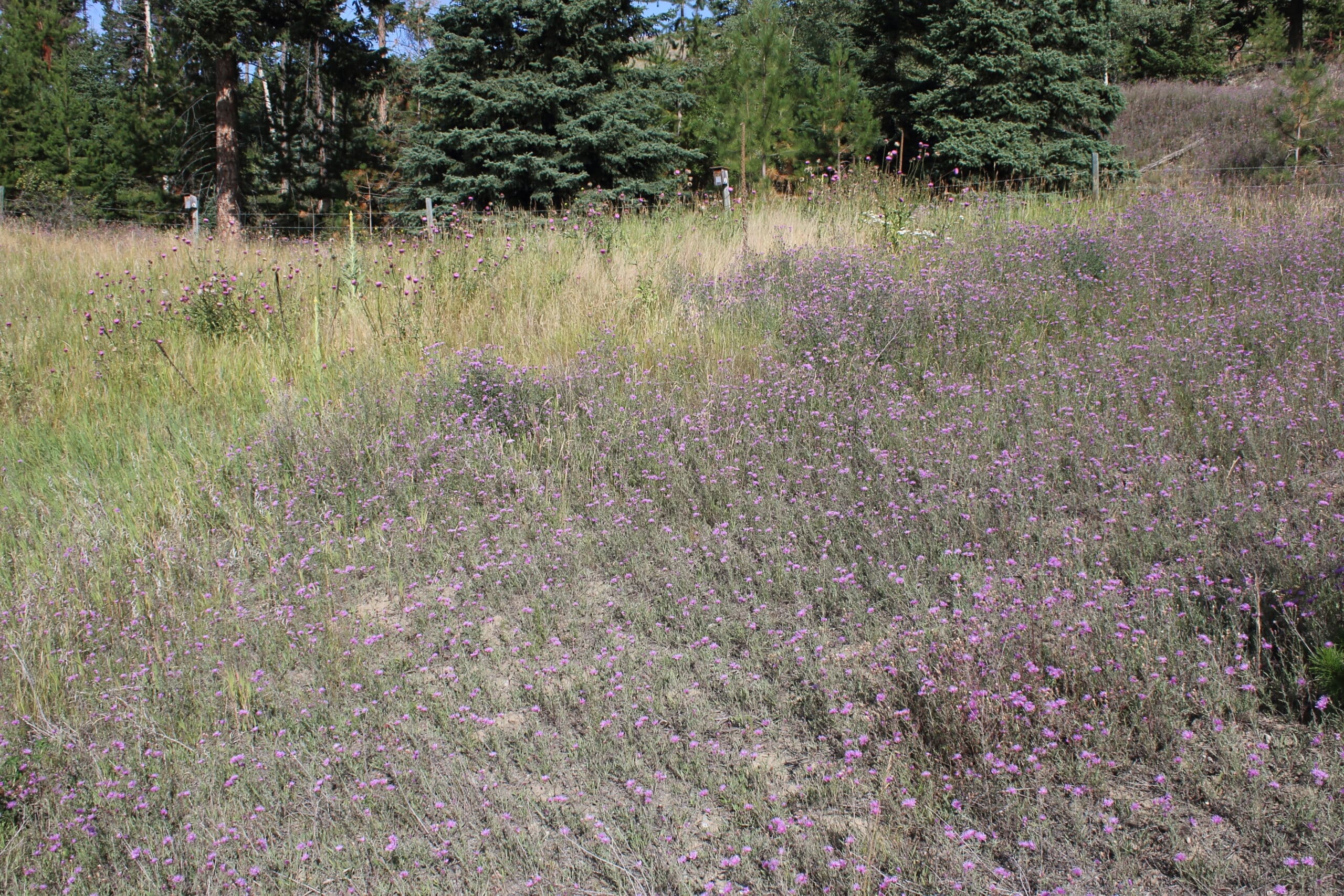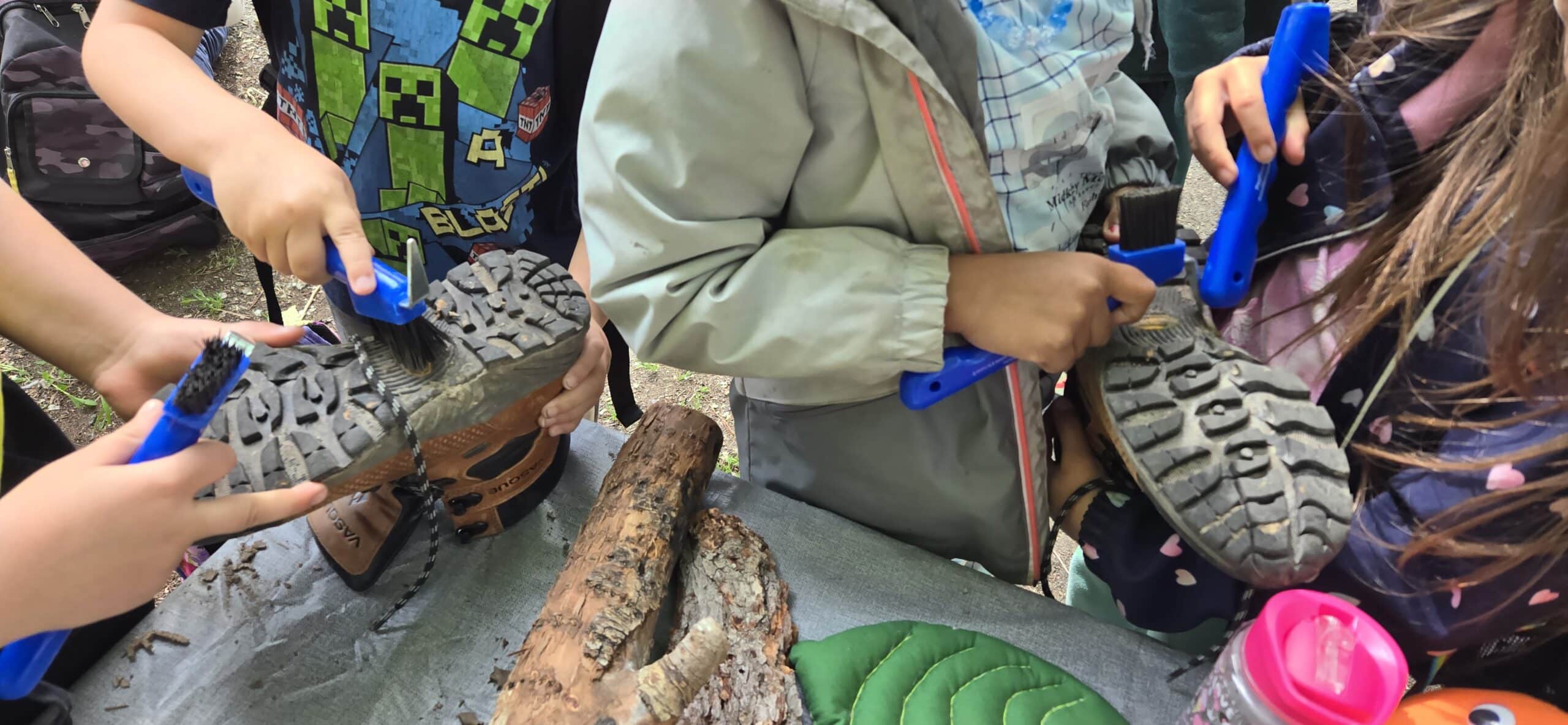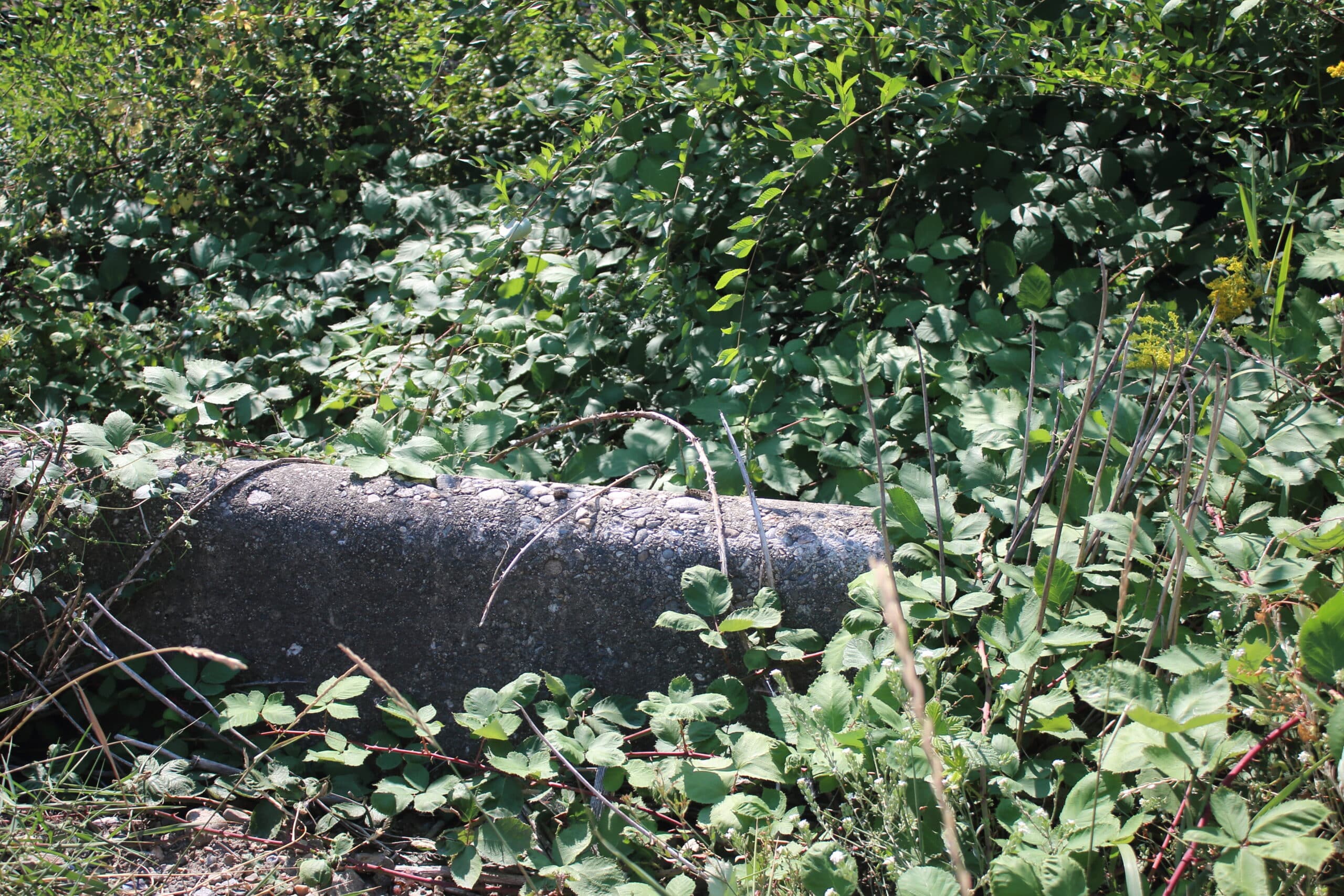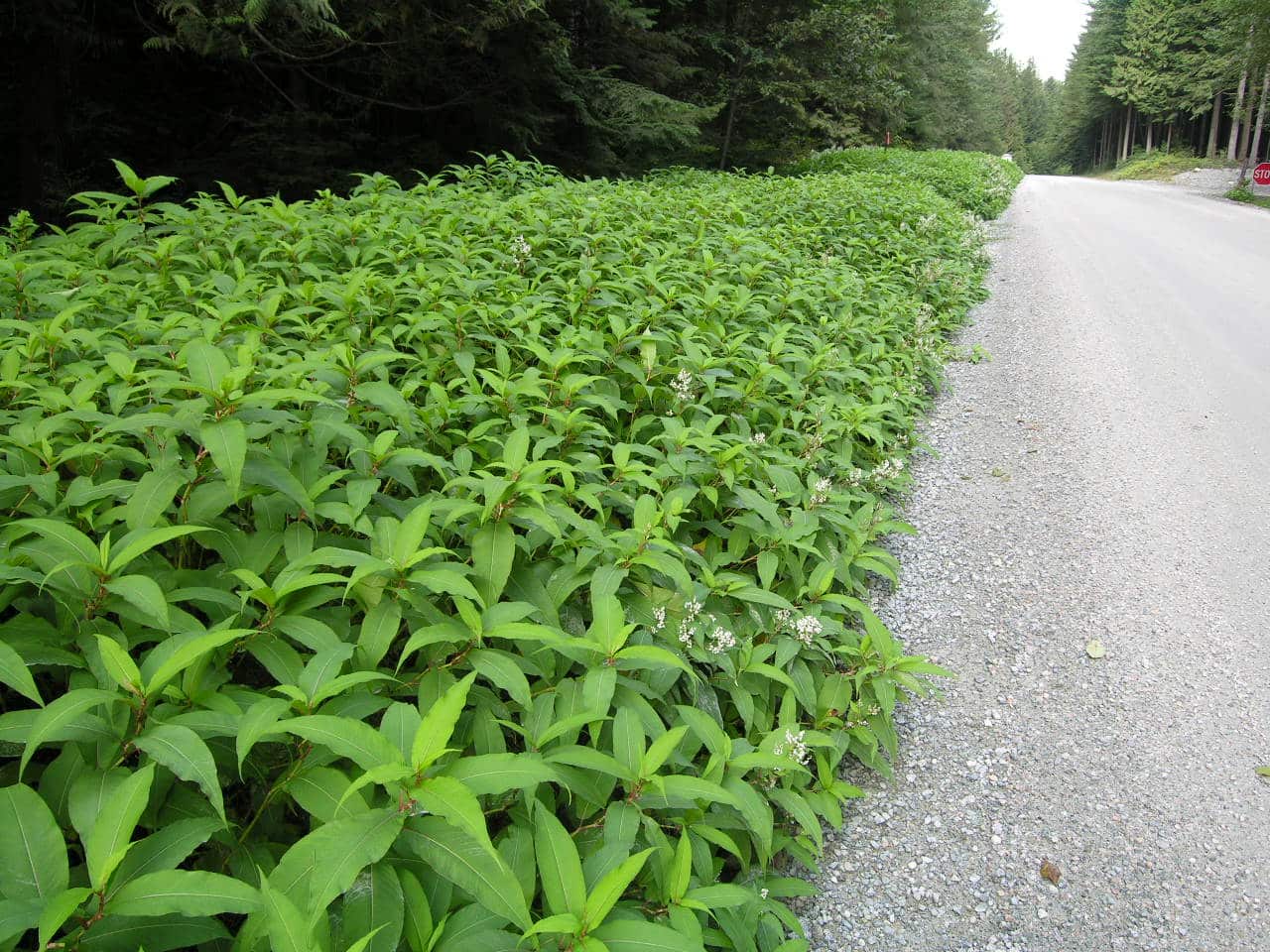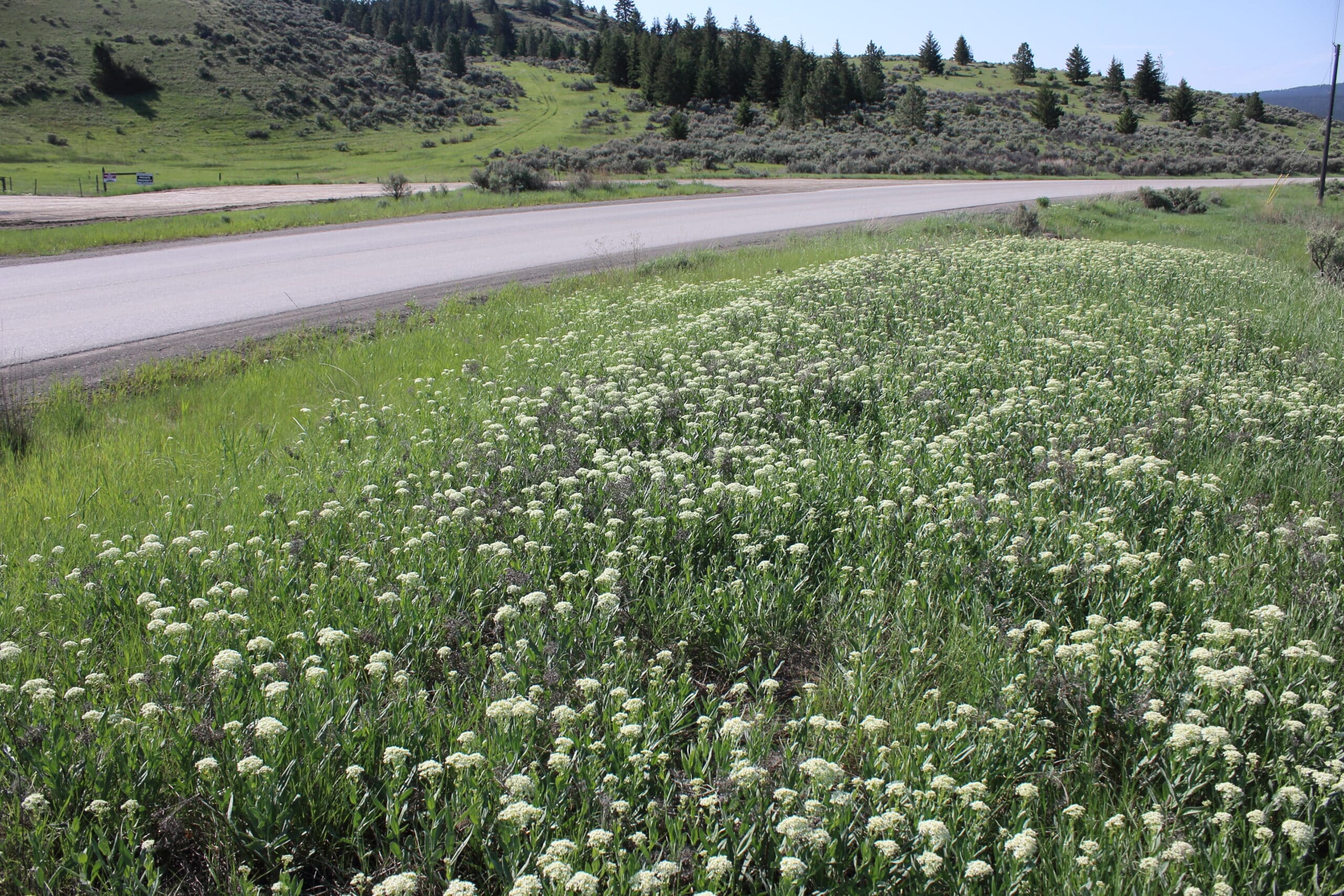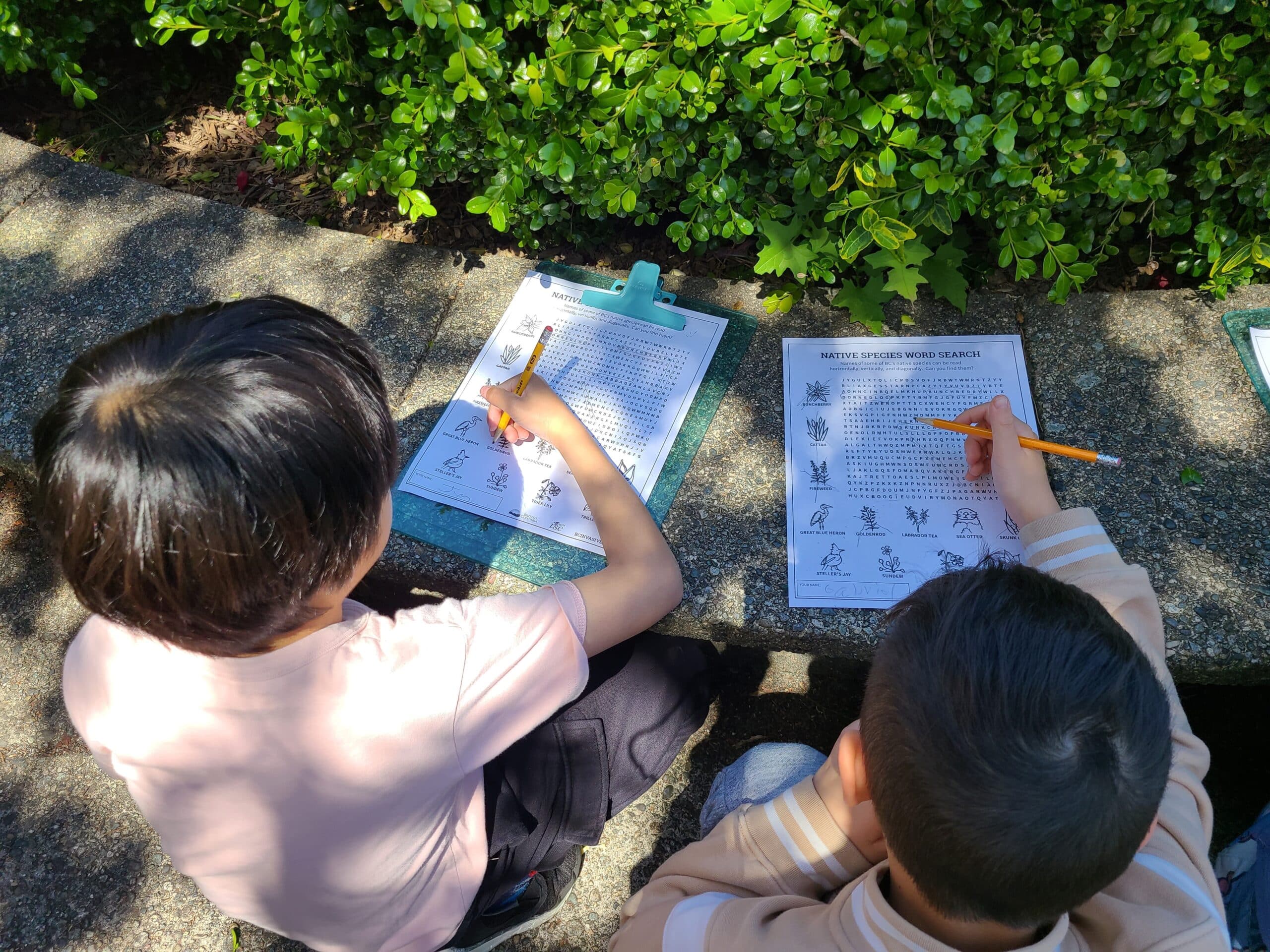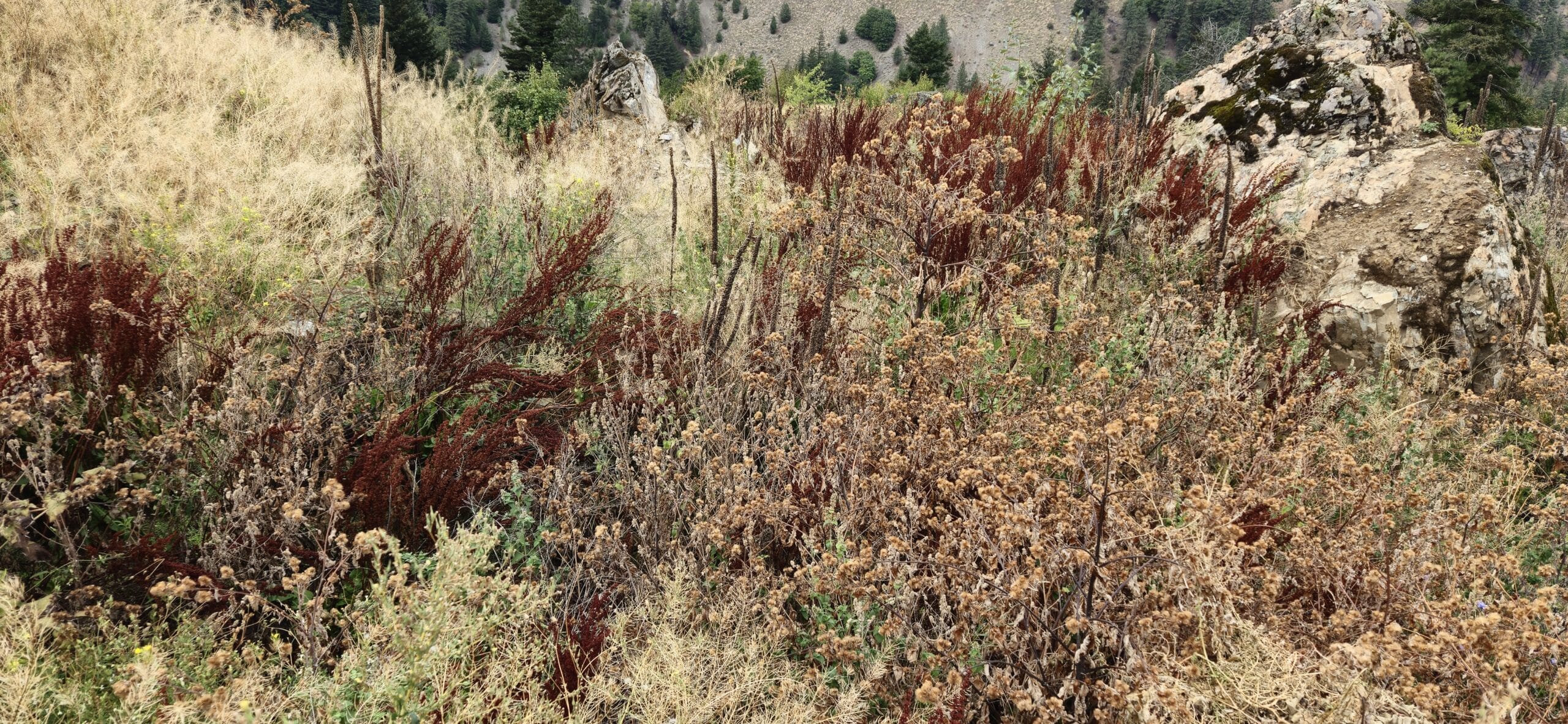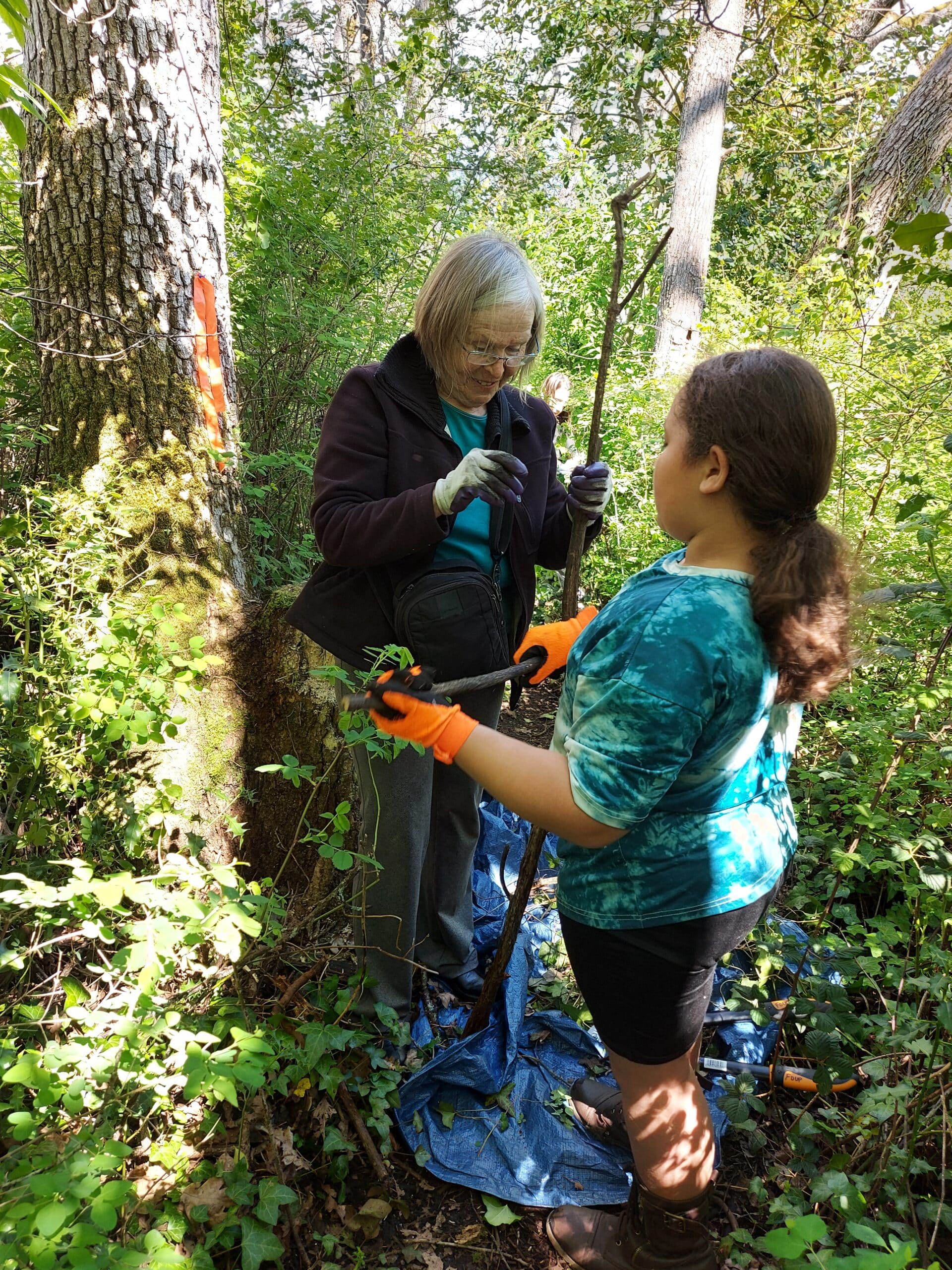Japanese knotweed
Warning
All knotweeds species in BC can grow through concrete and asphalt, damaging infrastructure. This can result in significant control, management, and repair costs.
About This Species
Knotweeds were introduced to British Columbia for use in gardens and landscaping due to their rapid growth and attractive appearance There are now four species established in BC: Bohemian (Reynoutria x bohemica), Giant (Reynoutria sachalinensis), Himalayan (Persicaria wallichii), and Japanese knotweed (Reynoutria japonica). Knotweeds grow aggressively and are very hard to kill. They are widespread throughout the province, and are often found in riparian areas, derelict land, road and railway right of ways and gardens. They thrive in moist soil and full or partial sun. Knotweeds can spread by seed, root fragments, and stem fragments, making them very difficult to control. Himalayan knotweed is designated as a Provincial Noxious Weed by the BC Weed Control Act, as well as a Regional Containment/Control species by the BC Provincial Priority Invasive Species List.
How to Identify
Japanese knotweed is a bamboo-like tall, straight and dense plant growing 1-5m in height. Stems are hollow and green, sometimes with reddish-brown speckles and may persist through the winter as bare, grey- or straw-colored hollow stalks.
Flowers are attractive plumes of small, white to green clusters in the spring.
Leaves are heart- to triangular-shaped, 8-10 cm wide and 15 cm in length. A distinguishing feature of Japanese knotweed is that its leaves grow in a zigzag pattern in along the plant’s arching stems.
Take Action
Prevention is the best approach.
- Knotweeds Factsheet PDF
-
If you need advice about invasive species on your property or you are concerned about reported invasives in your local area, contact your local government or regional invasive species organization.

PlayCleanGo
Learn about best practices

Plantwise
Learn about best practices
A few non-invasive alternatives to plant instead of Japanese knotweed include:
- Black elderberry (Sambucus racemosa var. melanocarpa)
- False solomon’s seal (Maianthemum racemosum subsp. amplexicaule)
- Goat’s beard (Aruncus dioicus)
- Red-osier dogwood (Cornus stolonifera)
- Saskatoon berry (Amelanchier alnifolia)
REPORT TO PROTECT BC’S BIODIVERSITY

Use the app
Observe and report to protect BC’s biodiversity

Report through this website
Use our form to tell us what you’re seeing and where.



